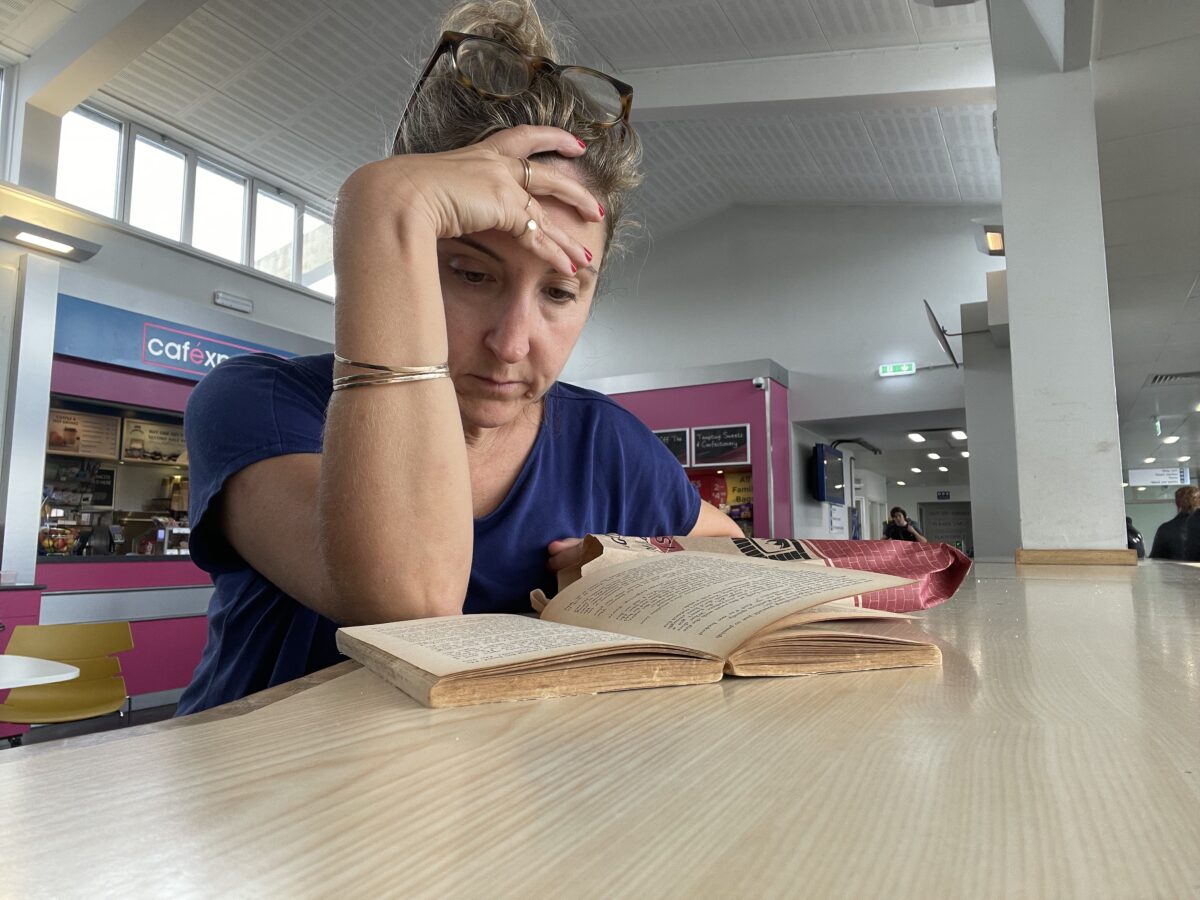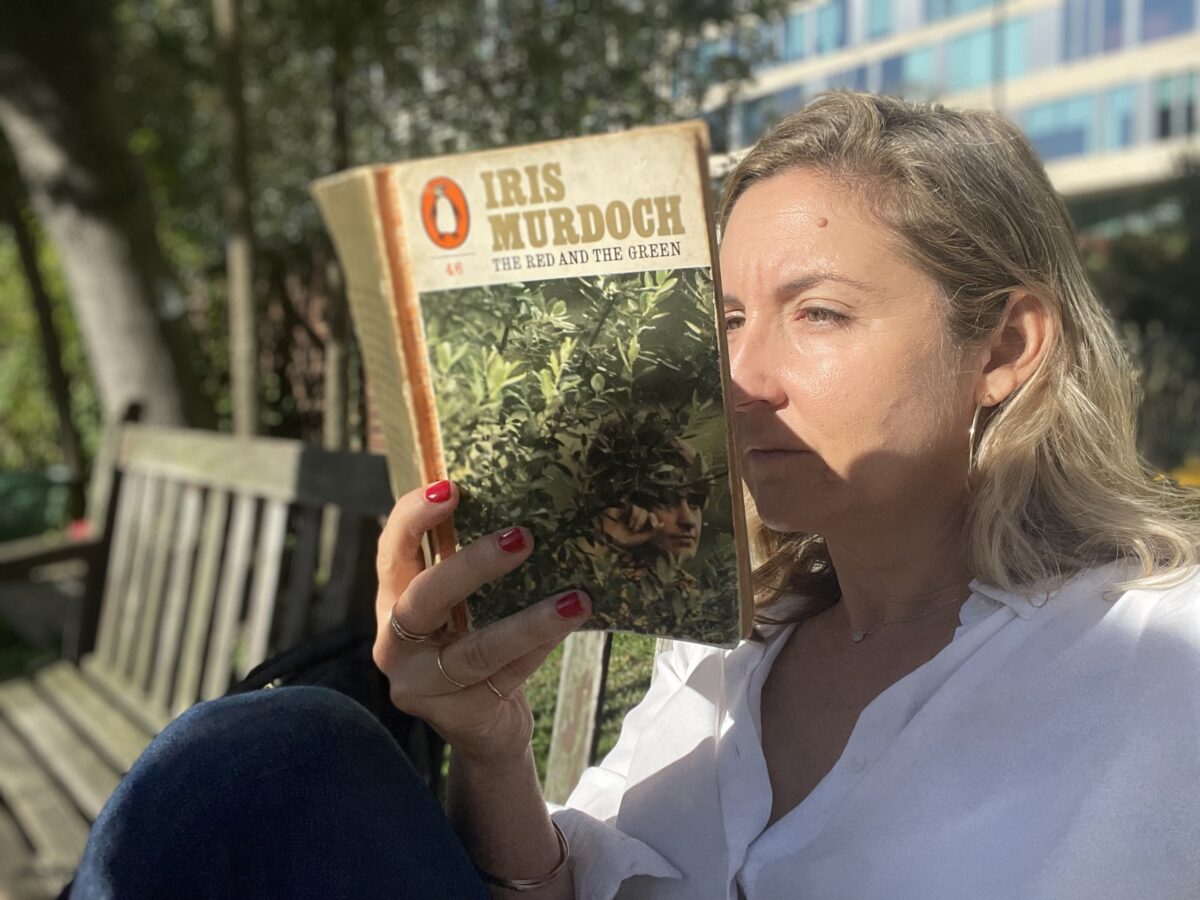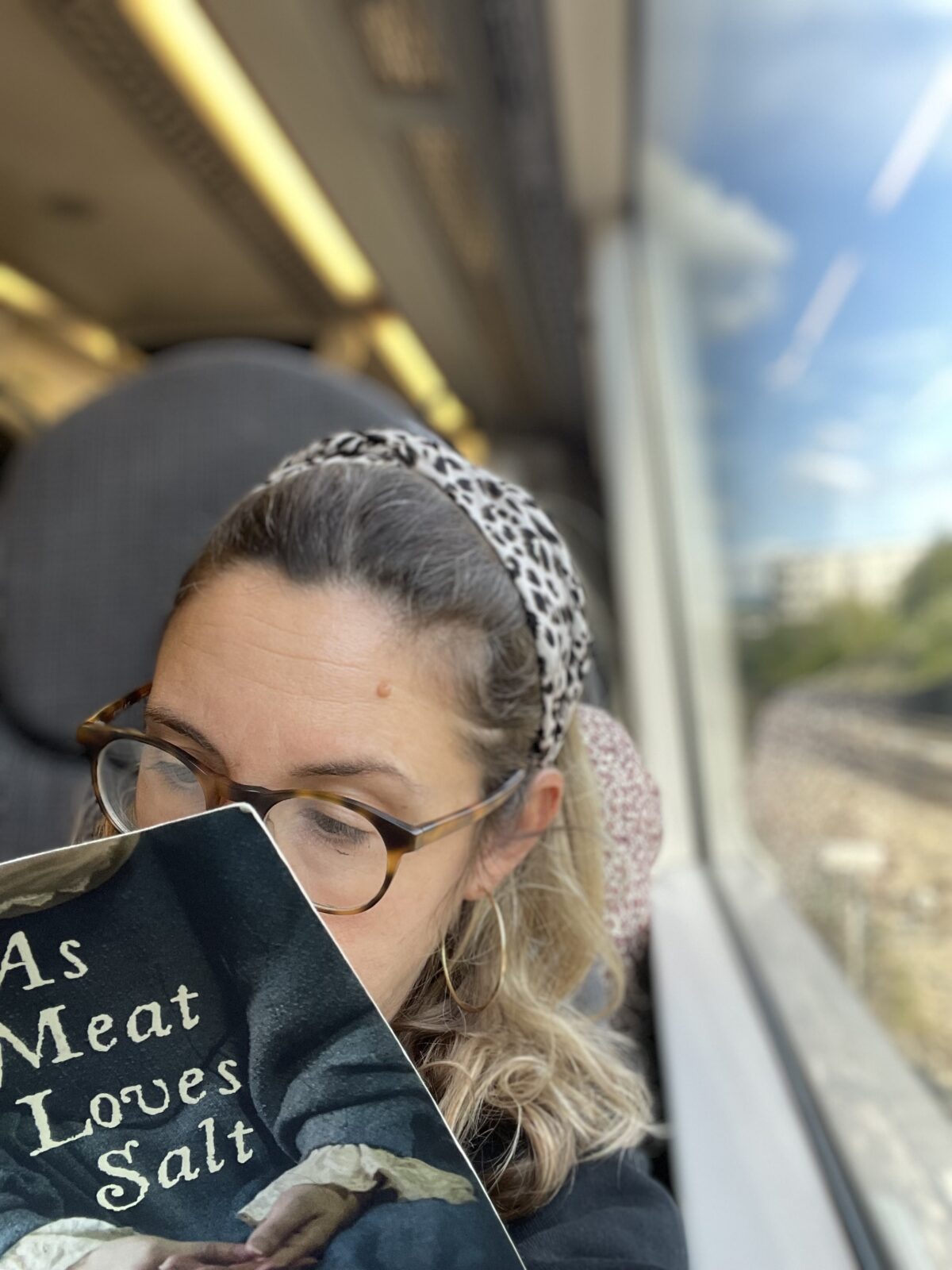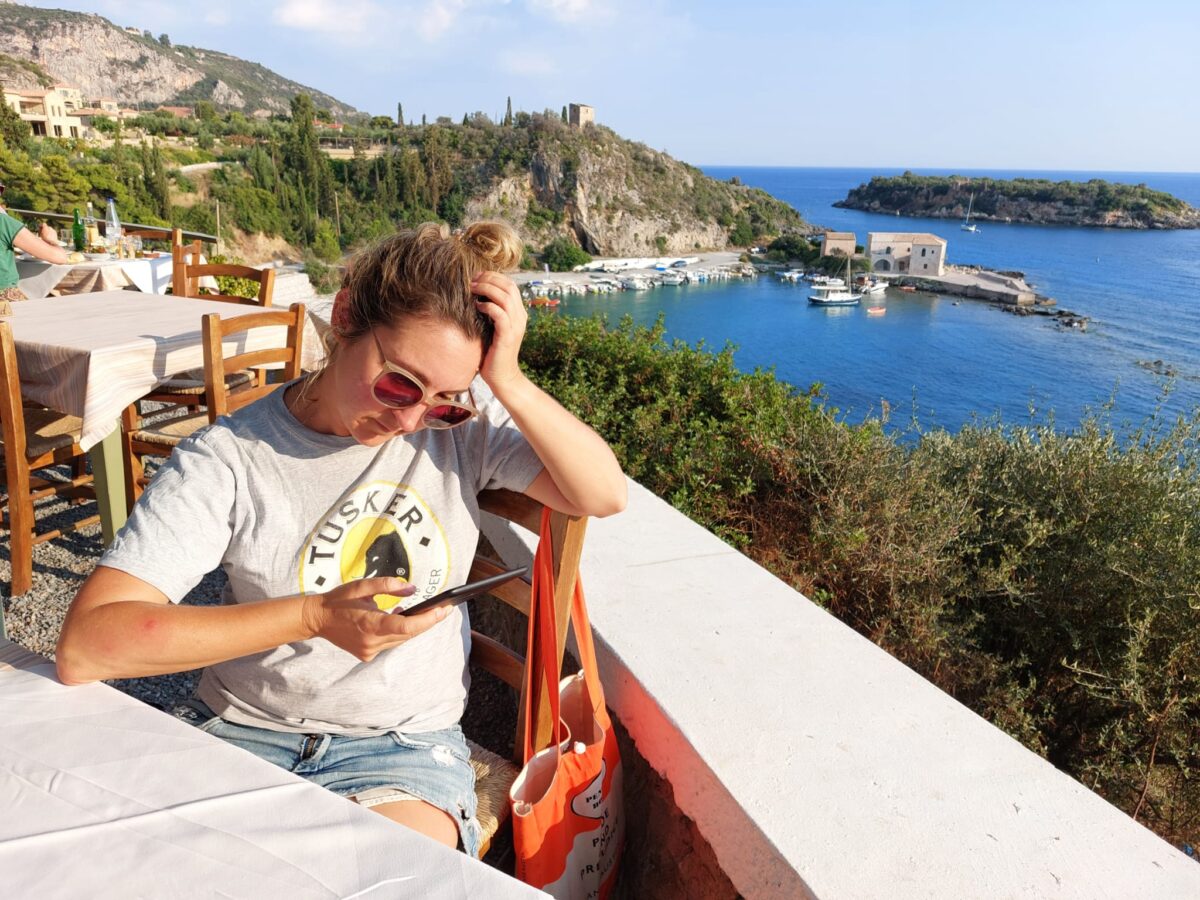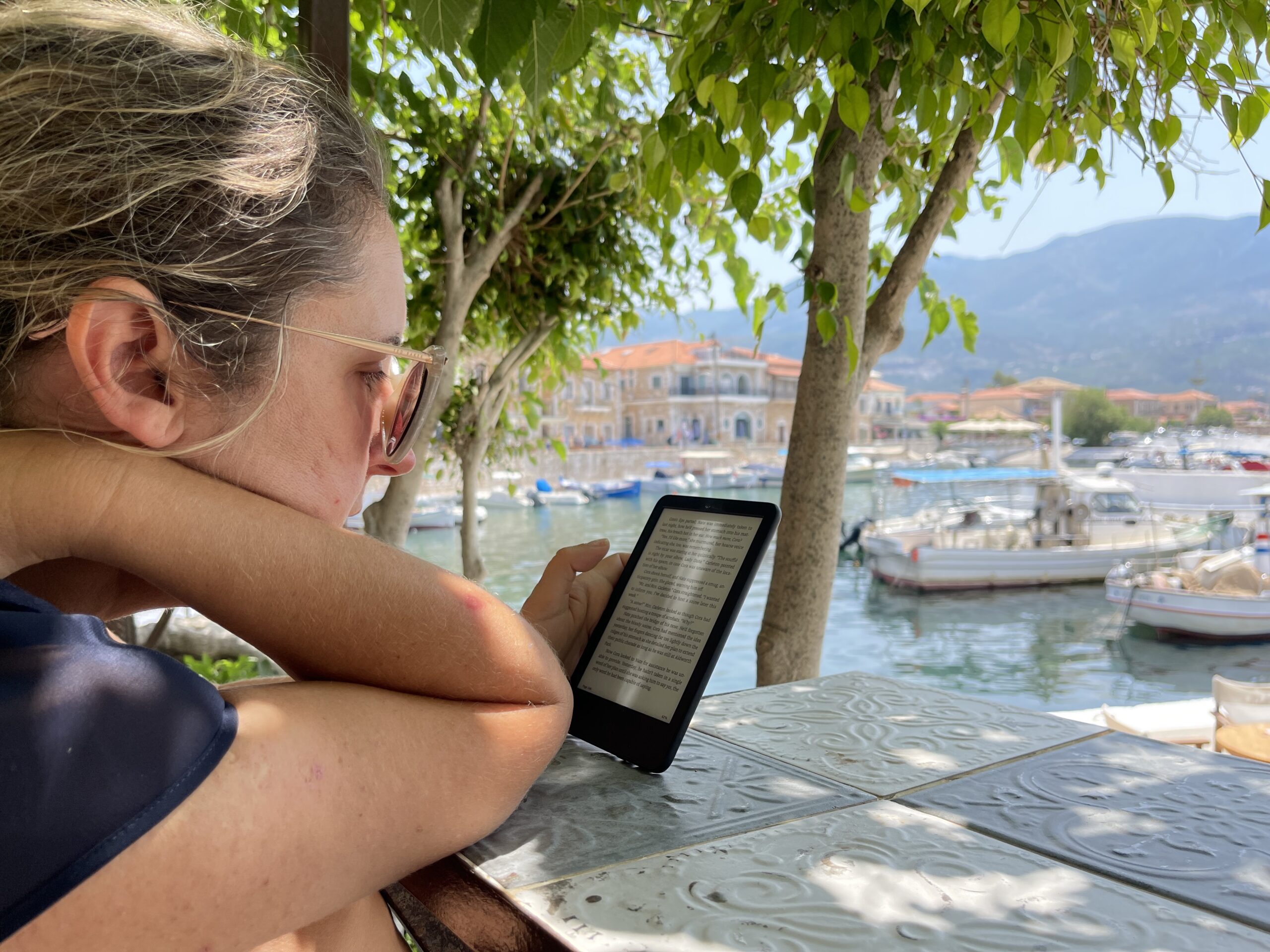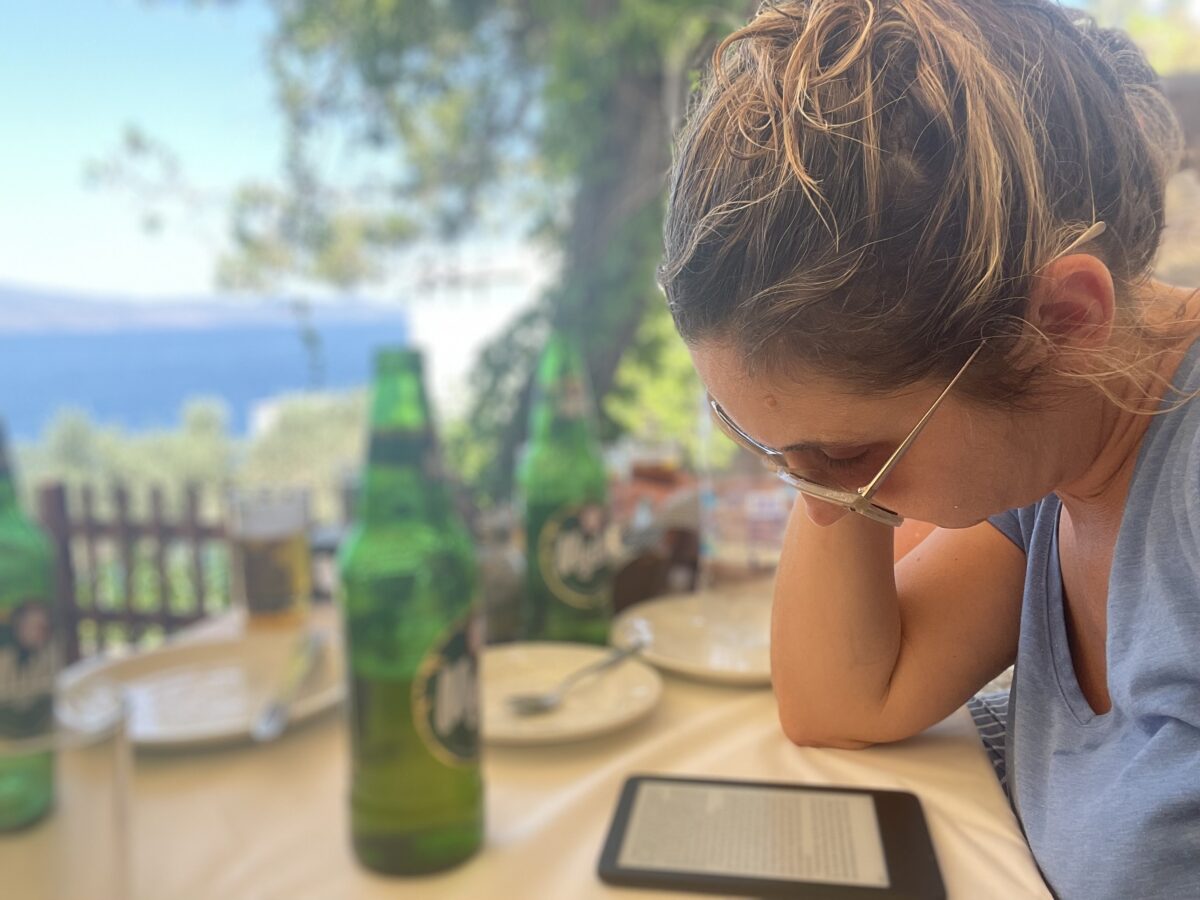A pretty unusual book, being a story of four generations of a Ugandan family. It was a sophisticated piece of writing, moving between the pre-colonial and the contemporary period. Historical fiction set in Africa is pretty rare, so I enjoyed the ambition of this book. My challenge was the same as for all multi-generational stories, which is that it can feel like a series of short stories, and I am not a big fan of short stories. They feel to me like getting dumped: you are just starting to care and then all of a sudden it’s over.
Author: sarahwp
THE RED AND THE GREEN by Iris Murdoch
Here was a really strange book where there was a nephew in love with an aunt, an aunt in love with a nephew (unfortunately a different one), an uncle with a lot of weird religious issues and all of this going on against the backdrop of how everyone really feels about the English in Ireland. SPOILER ALERT: they don’t like it.
I got about three-quarters of the way through and just had to stop. The incest, the obsessive Catholicism, I just couldn’t get into it. And the whole time one of the nephews was boldly heading towards what he thought was going to be a great victory for Ireland in an uprising happening at Easter 1916. He was to be garrisoned at the Post Office. I know next to nothing about Irish history, but I am pretty sure that was happened at the Post Office was not very nice, was in fact rather bloody, and that certainly it was not a victory. I just couldn’t hang in there for it.
AS MEAT LOVES SALT by Maria McCann
This book was five hundred pages long and I could easily have read another five hundred. I am in mourning that it’s over. It’s set in the English Civil War, and I now feel a weird sense of ownership of this period like: don’t you KNOW how terrible the siege of Basing House WAS? This is a fairly big leap from the beginning, when I was not sure which side Cavaliers were vs Roundheads.
It tells the story of one Jacob, and is mostly a love story about him and a man he meets in the army. Interestingly though, Jacob is not what you would call a nice man. He is very very needy and possessive, and this shows up, in time-honoured fashion, in domestic violence. And just regular violence. I read one review that said that put them off, but for me it made it more interesting. It was very compelling to see how it all made sense to him in his own warped world. Plus which, I am not sure that people who had to deal with the rigours of servant life in the seventeenth century, and then were in a terrible war, and then, and I didn’t really understand this part, were in some kind of utopian effort to claim common land as farm land (?) and then emigrated to America, are necessarily ready to be judged by today’s morality. The siege of Basing House alone!
I am desperately trying not to just immediately start another McCann. I don’t know who this lady is but I LOVE HER.
CLEOPATRA AND FRANKENSTEIN by Coco Mellors
A readable little book about a marriage between a young woman and a much older man that goes very wrong. I whipped through it, but somehow it didn’t touch me. I think maybe there was too much drama? I have always struggled to understand tortured relationships.
VLADIMIR by Julia May Jonas
A wonderfully fun, salty novel, written from an unusual perspective: that of a woman in her late fifties. I don’t want to get all identity-based about everything, but wouldn’t it be interesting to know how many more books have 50-something male narrators than female ones? I bet it is like minimum 10x
Anyway in this book, enjoyably, the woman has a huge crush on a much younger man. He dresses well:
(I) had forgotten the specificity and light irony of urban style. My husband wore what he wore because he believed in it – he had lost the sense of costuming and presentation that well-dressed city dwellers naturally possessed. That perambulating sense of always being on display.
“Specificity and light irony” – I love it! She worries about her wrinkles, stops eating carbs, gets him drunk, and then goes direct to drugging him and tying him up. I had great hopes for where this was going. Then it took an abrupt left turn into much more ordinary territory. But I still had a lot of fun. Try this, when she is angry at her husband:
. . . lightning bolts of anger shot from my vagina to my extremities. I’ve always felt the origin of anger in my vagina and am surprised it is not mentioned more in literature
And this, when someone compliments her for all the art and poetry on her walls, and she replies:
But does one always want to be surrounded by so much culture? There’s something exhausting about being constantly bombarded by everyone’s best efforts
It was very pithy and interesting, even if I would have preferred the plot to go another way. I even liked this last reflection on what she had or hadn’t done:
Getting away with something, not getting away with something, moral retribution. I don’t matter, you don’t matter. To think we do is just marketing. It’s this cult of personality.
PINEAPPLE STREET by Jenny Jackson
This bestselling book was very more-ish. It was at the same time kind of forgettable. It was like a nice glass of water on a hot day. Or perhaps I just think that because I read it in a really hot country during a heatwave.
It is about a family of very wealthy people, and was an interesting window into what your problems are once the money one is solved. Boo-hoo, etc. One thing that did surprise me was the idea that employment in banking is heavily dependent on pedigree. In my experience, it seems to be a lot more meritocratic than that, and mostly dependent on hard slog. I was also struck, once again, by how much some people, especially thin people, seem to worry about their weight.
But that’s about all I have to say. I did read it in a single day though, so I must have enjoyed it
IN THE CUT by Suzanne Moore
Writing about sex is famously hard, but this book makes it look easy. It’s a thriller, in which a woman becomes involved with a homicide detective who she suspects of having himself committed the murder he is investigating, and of thinking of murdering her too. She gets lots of sex from him, and lots of sexual harassment from everybody else.
I can only wonder what New York was like in the 90s. For example: at one point she sits down to eat a hamburger alone in a bar, some guy starts bothering her, and she leaves. What is weird about this is that apparently it was clear to her (and to him) that eating alone was asking for trouble, and when that trouble comes, she does not at all expect anyone to help her. She barely objects. Imagine! I never think twice about eating alone.
The book is so very thriller-y that I was continually surprised to see it was written by a woman, and was interested by this, from the Guardian
Today, speaking to me from New York, (the author) says she realised she had been pigeon-holed as a “woman’s writer”. “And I found that quite limiting. So I decided that I would write a noir thriller, which is more commonly associated with male writers. It was very conscious on my part that I would make it tough and as erotic as possible.”
It’s kind of pot-boilerish, but that’s just what she is going for. And really, she’s a fine writer. Not just about sex, but try this description below, which I find very true of big talkers:
Like most people who are anecdotal, he told me nothing. He revealed nothing about himself. He talked a lot, but he only told me what he wanted me to know. Which wasn’t much.
DEAR GIRLS by Ali Wong
Here is a set of essays by a stand-up comic, structured as letters to her young daughters. It is fun and silly. Here she is on a failed one night stand:
That’s what happens when you spontaneously go home with a fellow struggling stand-up comic or, even worse, an improviser. (Please says say ‘fuck no’ to those ‘yes and’ mother fuckers).
I have for some reason read quite a few books by stand-ups, and I’m always struck by how incredibly rough it sounds: the travel, the horrible venues, the silent audiences. I admire it. I was especially touched by her early twenties, which sound a lot like mine:
Every day in NYC was about spending as little money as possible.
People don’t talk about that too much, preferring to focus on having genius or technique or whatever, but in my experience being able to live on nothing is way more important
THE STRANGER IN THE WOODS by Michael Finkel
Here is the true story of a man who camped in the woods, completely without human contact, for 27 years. I take it back: in the 1990s, apparently, a hiker said ‘hi’ to him.
This is a mind-boggling story. This guy from Maine, one year out of high school, leaves work one day and drives to Florida. Then he drives all the way back to Maine, past his childhood home, and keeps driving, deeper and deeper into the woods, until he runs of petrol. He puts the keys on the dash, and heads into the woods with nothing. And then he just doesn’t come out again.
I don’t want you to get the impression that he was there, wandering through glorious vistas and living off the land. He essentially found a small clearing, behind some rocks, that was minutes away from holiday homes, and just stayed there. All winter, he did not move. Even in summer, he only left to go steal necessities form the holiday homes. He just sat there, in this clearing, for 27 years. Once finally caught, police noticed how pale he was, and he accounted for this as follows: ‘I’m from the woods, not the fields.’ His main concern once police were in his camp seemed to be for his mushroom, that had grown from being coin-size to dinner-plate-size while he sat there. He apparently concluded he could not have a mammal pet, because he did not want to have to ever be forced to eat a pet.
This was a possibility, because every winter he got close to dying. He stole as much as he could in the summer, but it was hard to make it through the whole winter on that. He woke up every night at 2am to walk around so he didn’t freeze to death. And all the time there was a convenience store not 10 minutes away.
Probably the weirdest part of this whole story is that this guy does not seem to be crazy. In the woods he listened to the radio, and read books. After getting out of prison he went back to live with his family (who btw he did not tell that he was leaving). It just seems he did not much like human interaction, so he cut it out. He opted out.
He spent a lot of his time in the clearing apparently not fixing stuff, or reading, or whatever, but just sitting there. He cannot well describe it, but it is clear he had the experience of going out of himself. Because you don’t need a self when there is no one else to have a self for. He just listened to the wind and looked at the leaves. And then there was the pet mushroom.
I mean it does make you doubt your own choices. Somewhere the author quotes the line, attributed to Sophocles, of ‘Beware the barrenness of a busy life,’ and I’ve been thinking about that.
FOREVER YOUR ROGUE by Erin Langston
I read this romance because it was recommended in the New York Times. I was not quite prepared for how genre it was. It was full of smouldering eyes and things that throbbed. That said, I enjoyed it! The author pulled off the difficult feat of writing historical fiction in a way that felt contemporary and real without being ridiculously anachronistic. I also think genre writers don’t get nearly enough credit for how difficult it is to re-tell the most re-told stories in a way that is fresh and interesting. Also, I must confess I read it on a hot beach with a cold beer. How dead inside would I have to be to not enjoy that?

